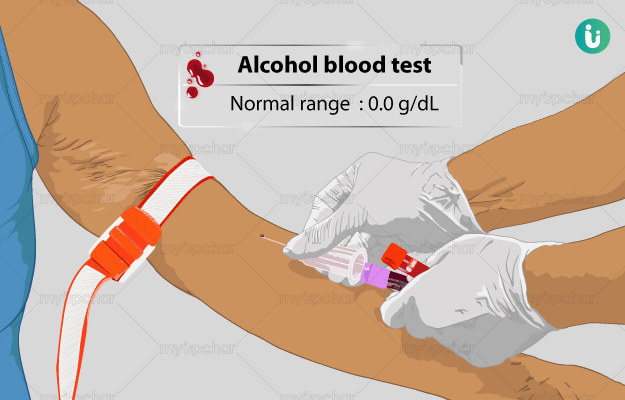What is Alcohol Blood test?
Alcohol blood test measures the levels of alcohol circulating in your bloodstream.
Although a breath analyser is a faster method for analysing alcohol levels in body, a blood test is more accurate.
All the alcohol absorbed in the blood is processed by the liver. However, liver can process only one drink in an hour; therefore, if you drink faster than this rate, you will start to feel the effects of alcohol intoxication. The level of alcohol in your blood remains high for 30-90 minutes after your last drink.
An alcohol blood test can be done to check for alcoholism or to ascertain the levels of alcohol intoxication in drunk drivers. In children, it can help diagnose alcohol poisoning. Generally, alcohol poisoning is accidental. Young children may consume alcohol from the following:
Most cases of alcohol poisoning seen in children are due to intake of mouthwash or cologne.






























